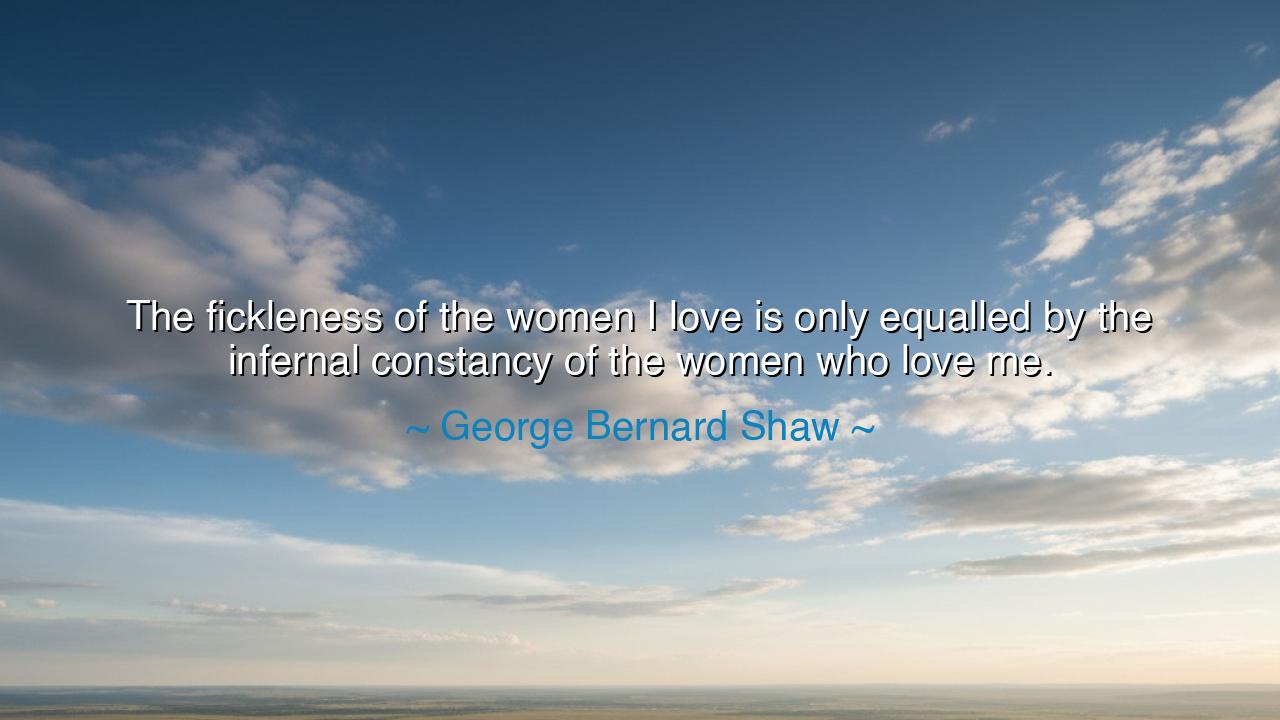
The fickleness of the women I love is only equalled by the
The fickleness of the women I love is only equalled by the infernal constancy of the women who love me.






The words of George Bernard Shaw, “The fickleness of the women I love is only equalled by the infernal constancy of the women who love me,” are spoken with wit, yet they touch a truth both bitter and comic. In them lies the eternal tension of desire: the beloved is often elusive, while the one who offers devotion is often unwanted. Thus, the heart is caught between the torment of longing for those who waver and the burden of those who cling. Shaw’s jest is the sigh of a man trapped in love’s paradox.
In the ancient spirit, this is the story of Eros, who strikes the heart not where it would find harmony, but where it would find struggle. Desire rarely moves in balance. What one pursues slips away like water through the fingers, while what one ignores pursues with unyielding force. Shaw’s words reveal that love, though sought as a blessing, often comes as irony: the fickleness of passion and the constancy of devotion seldom align in the same place.
Consider the tale of Petrarch and Laura. Petrarch adored Laura with burning passion, writing sonnets that made her immortal in poetry. Yet Laura, the woman he loved, never gave herself to him, remaining distant and untouchable—a living symbol of fickleness. Meanwhile, countless women adored Petrarch for his brilliance and charm, but their constancy could not move his heart, for his soul burned only for Laura. Thus, like Shaw, he suffered the irony of mismatched affections.
Shaw’s words also speak to human folly: we often yearn most for what resists us and take for granted what is already ours. This is not only the plight of romance, but the plight of life itself. The treasures within reach seem dull, while those beyond grasp seem radiant. The constancy of love offered can feel suffocating, while the fickleness of distant affection burns endlessly bright in the imagination.
So let this teaching endure: in matters of the heart, desire is rarely just, and balance is rare. The wise must learn to honor the constancy that comes to them and not waste away chasing the fickleness of fleeting passion. Yet the irony of Shaw’s words remains a universal truth—love delights in turning upon itself, making jest of our longings and mocking our pursuits. And so it has been since the dawn of time, and so it shall be until the end.






AAdministratorAdministrator
Welcome, honored guests. Please leave a comment, we will respond soon